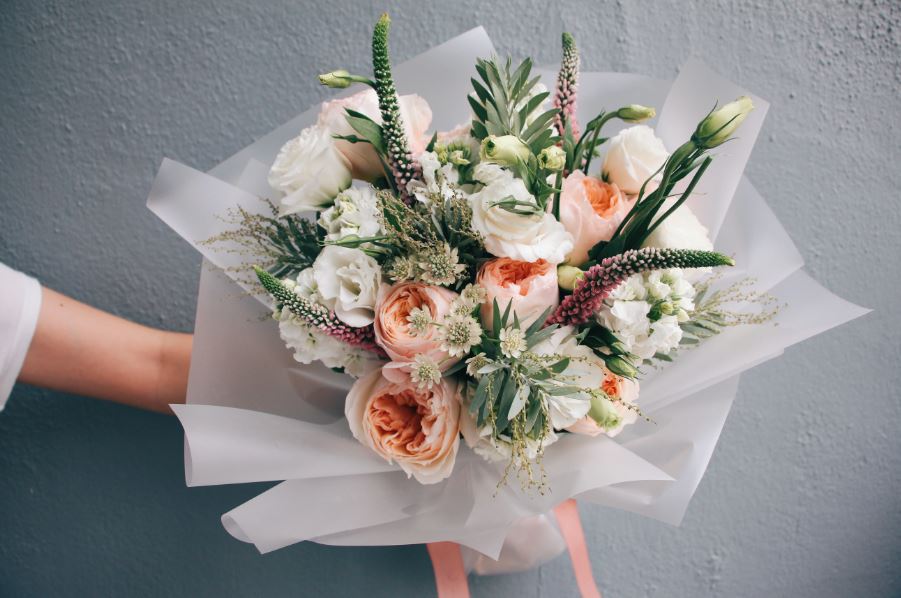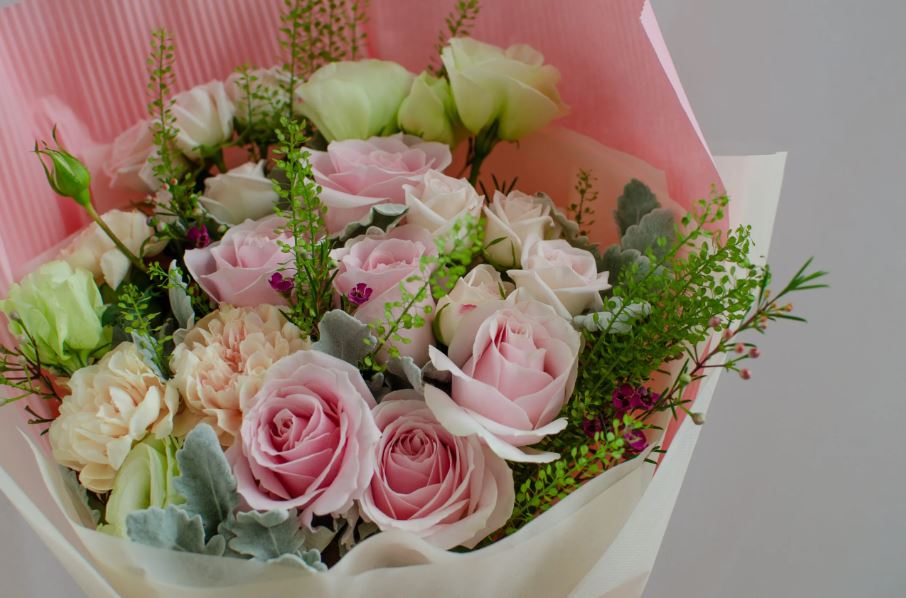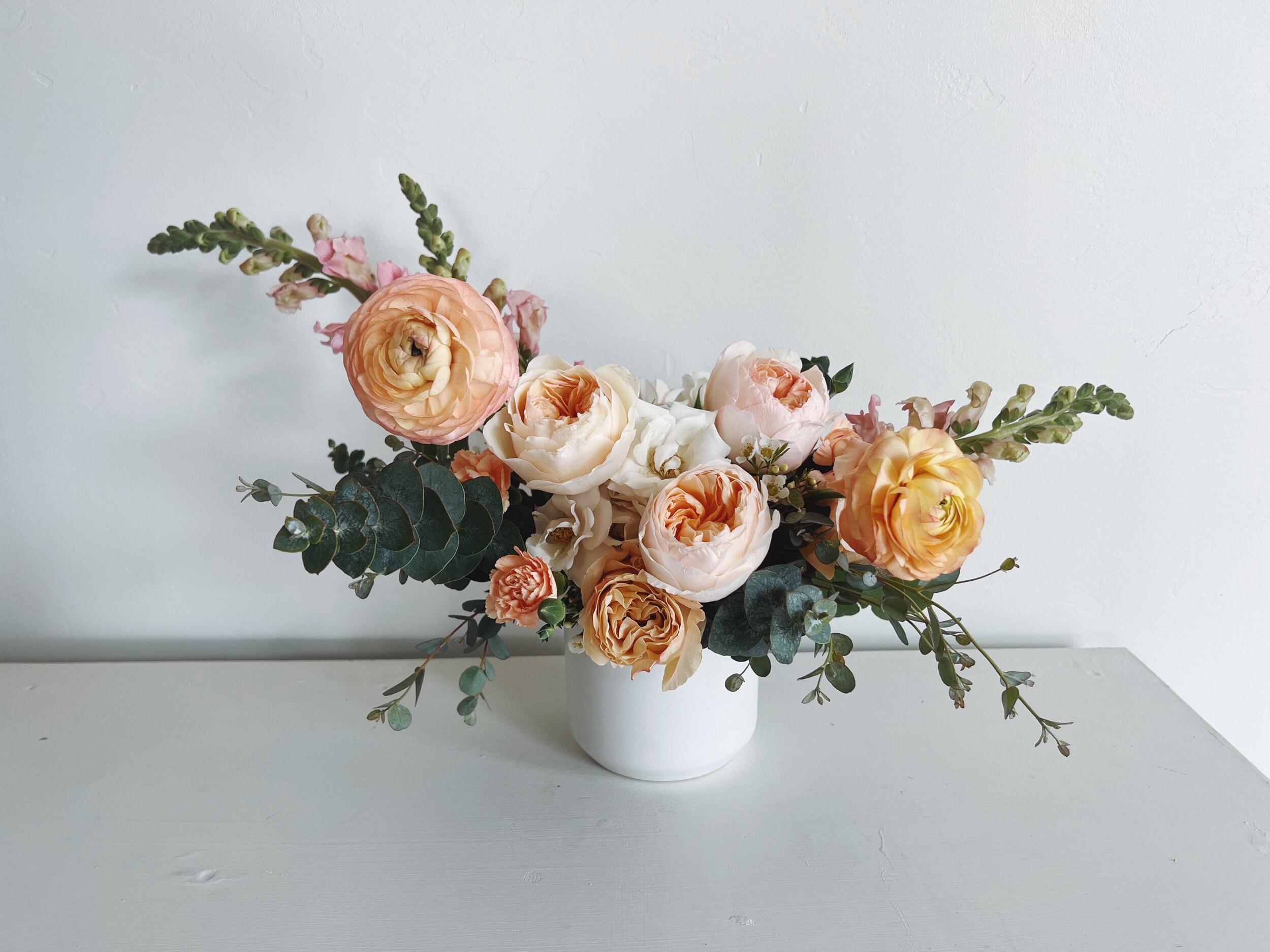Losing a loved one is an incredibly difficult and emotional experience. In times of grief, funeral flowers play a significant role in honoring the deceased and providing comfort to the bereaved. Choosing the appropriate funeral flowers requires careful consideration of factors such as symbolism, cultural significance, and personal preferences.
In this guide, we will explore the meaning behind different types of flowers, the cultural significance of funeral flowers, factors to consider when choosing funeral flowers delivery, popular funeral flowers and their meanings, as well as tips for arranging funeral flowers.
Understanding the Symbolism of Funeral Flowers
Funeral flowers are not merely decorative. They carry profound symbolism that can express sentiments and emotions that words often fail to capture. Understanding the meaning behind different types of flowers is crucial in selecting appropriate arrangements for a funeral.
Funeral flowers have been used for centuries as a way to pay tribute to the departed and offer solace to the grieving. The choice of flowers can convey a message of love, respect, sympathy, or even celebration of the life that was lived. It is a thoughtful gesture that transcends language and cultural barriers. Learn more about the significance of different flowers at funerals.
The Meaning Behind Different Types of Flowers
Each flower has its own symbolic significance. For instance, white lilies traditionally symbolize purity and innocence, making them a popular choice for funerals. Roses, particularly red ones, convey love and respect. Carnations are often associated with admiration and remembrance.
Aside from their symbolic meanings, the colors of the flowers also play a significant role in conveying emotions. White flowers symbolize purity and peace, while red flowers evoke love and courage. Yellow flowers can represent friendship and joy, while purple flowers are often associated with dignity and admiration.
Cultural Significance of Funeral Flowers
Funeral flower customs vary across cultures. In some cultures, certain flowers are considered more appropriate for funerals than others. For example, in Chinese culture, white chrysanthemums are commonly used to honor the deceased and show respect, while red and yellow flowers are seen as inappropriate for funerals.
In Japanese culture, the type and arrangement of flowers hold great importance. Chrysanthemums are a common choice for funerals, symbolizing truth and grief. However, in some regions, white flowers are reserved for funerals and are not used in other celebrations to avoid bad luck.
Factors to Consider When Choosing Funeral Flowers
When selecting funeral flowers, several important factors should be taken into account to ensure the arrangements are appropriate and meaningful.
Choosing the right funeral flowers is a delicate and thoughtful process that involves considering various aspects to honor the memory of the departed individual. Beyond just aesthetics, each floral arrangement holds significance and can convey different emotions and messages to those in mourning.
Relationship to the Deceased
The relationship to the deceased should guide your choice of funeral flowers. Immediate family members often opt for larger arrangements, such as casket sprays or standing wreaths, while friends and acquaintances may choose smaller bouquets or sympathy baskets.
Close family members may choose flowers that symbolize love, such as roses or lilies, while friends might opt for more neutral blooms like chrysanthemums or carnations. Understanding the nature of your relationship with the deceased can help you select the most appropriate floral tribute.

Personal Preferences and Wishes of the Deceased
If the deceased had expressed their preferences or had a favorite flower, incorporating it into the funeral arrangements can be a meaningful tribute. Respecting the wishes of the departed ensures the flowers chosen reflect their personality and bring comfort to their loved ones.
By incorporating the favorite flower of the departed, you not only pay homage to their individuality but also create a sense of familiarity and warmth during a difficult time. Whether it’s a vibrant sunflower or a delicate orchid, honoring their preferences can add a personal touch to the funeral proceedings.
Funeral Etiquette and Traditions
Funeral etiquette and traditions can influence the choice of funeral flowers. Some religions or cultures may have specific customs regarding the appropriate color or type of flowers. It is important to be mindful of these traditions and adhere to them when selecting floral arrangements.
Understanding the cultural significance of certain flowers can help you choose arrangements that are not only visually appealing but also respectful of the traditions followed by the bereaved family. Whether it’s white lilies symbolizing purity in many Western cultures or white chrysanthemums representing grief in some Asian traditions, each choice can hold deep meaning and provide solace to those in mourning.
Popular Funeral Flowers and Their Meanings
When it comes to funeral flowers, certain blooms have become widely recognized for their symbolism and beauty. Understanding their meanings can aid in creating arrangements that convey the desired message.
Funeral flowers have a long history of being used to honor and remember the departed. Each flower carries its own significance, adding layers of meaning to the tribute paid to the deceased. The choice of flowers can reflect the personality, beliefs, and relationships of the person being honored, making the floral arrangement a deeply personal and meaningful gesture.
Lilies and Their Significance
White lilies are often associated with purity, innocence, and the restoration of the soul after death. These elegant flowers are commonly used in funeral arrangements to convey sympathy and offer solace to the bereaved.
Aside from their symbolic meanings, lilies are also known for their strong fragrance and long-lasting blooms, making them a practical choice for funeral arrangements that need to stay fresh throughout the service and beyond. The trumpet-shaped petals of the lily add a touch of elegance and grace to any floral display, enhancing the overall atmosphere of reverence and honor.
Roses at Funerals
Roses have long been a symbol of love and beauty. At funerals, red roses can express deep love and respect for the departed. White roses, on the other hand, are often used to symbolize purity and innocence. Yellow roses can convey friendship and warmth, making them a thoughtful choice for commemorating the life of a close friend.
With their velvety petals and rich colors, roses add a touch of sophistication and classic beauty to funeral arrangements. The intricate layers of petals symbolize the layers of memories and emotions shared with the deceased, creating a visual representation of the depth of love and connection felt by those in mourning.

The Role of Carnations
Carnations are a versatile flower commonly found in funeral arrangements. They are frequently chosen to express admiration, remembrance, and enduring love for the deceased. The wide range of colors available allows for personalization of the arrangements.
Known for their ruffled petals and spicy fragrance, carnations bring a sense of comfort and nostalgia to funeral displays. Their durability and long vase life make them a practical choice for arrangements that need to withstand the duration of the funeral service and beyond. The intricate layers of petals in carnations symbolize the layers of memories and emotions associated with the departed, creating a poignant tribute that honors their life and legacy.
Arranging Funeral Flowers
Arranging funeral flowers requires careful thought and consideration to create meaningful tributes that honor the deceased and provide comfort to grieving loved ones.
During the process of arranging funeral flowers, it is important to understand the different types of arrangements available and their significance. One popular choice is the casket spray, which is placed on top of the casket and serves as a tribute to the deceased. These arrangements often feature a combination of flowers that hold special meaning or were favored by the departed. They are a beautiful way to pay homage to the person’s life and bring a sense of peace to those in mourning.
In addition to casket sprays, there are standing sprays and wreaths that can be displayed near the casket or at the gravesite. These arrangements symbolize eternal love and remembrance, offering a visual representation of the lasting impact the person had on the lives of others. They provide a comforting presence during the funeral service and serve as a reminder of the love that will endure even after death.
Sympathy baskets and bouquets are another option for funeral flower arrangements. These can be sent to the funeral home or the home of the bereaved as tokens of comfort and support. Sympathy baskets often include a variety of flowers and thoughtful additions such as candles or small keepsakes. They serve as a tangible expression of condolences and offer a sense of solace during a difficult time.
When it comes to choosing the right florist for funeral flower arrangements, it is crucial to select someone with experience in this specific area. A reputable florist who specializes in funeral arrangements can guide you through the process, helping you choose the right flowers, colors, and arrangements that best convey the desired sentiments. They understand the importance of these tributes and can ensure that the arrangements are delivered on time and handled with care.
Timing and delivery are also important factors to consider when ordering funeral flowers. It is essential to coordinate with the funeral home or the designated location to ensure that the flowers are delivered at the appropriate time. Timely delivery showcases your respect and consideration for the grieving family, allowing them to focus on the service and find comfort in the presence of the arrangements.
In conclusion, choosing appropriate funeral flowers involves understanding the symbolism of different flowers, considering cultural significance, and being mindful of the deceased’s relationship and wishes. By selecting flowers with meaningful symbolism and arranging them thoughtfully, funeral flowers can provide comfort and solace to grieving loved ones and serve as a beautiful tribute to the departed.

